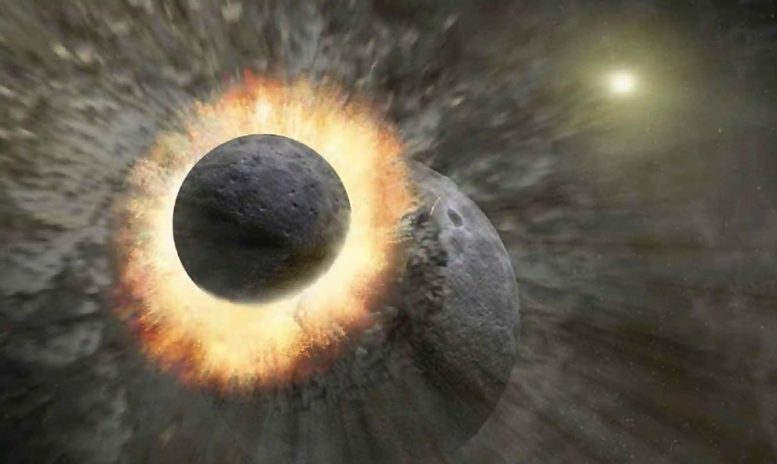
Artist’s impression of the Moon-forming event. A moon is a natural satellite that orbits a planet or dwarf planet. Moons are held in their orbits by the gravitational attraction of the planet they orbit. They come in different sizes and shapes, and their surfaces can vary from icy to rocky, and from smooth to heavily cratered. Our own moon, for example, is the fifth largest moon in the solar system and is thought to have formed around 4.5 billion years ago. Credit: NASA/JPL-CalTech/T. Pyle
Where do moons come from?
Well, they actually can come from a lot of different places. Our Moon, for example, we believe formed in a cataclysmic impact between the early Earth and a Mars-sized planet. In just a few moments, this impact would have melted the entire Earth into a lava world, sending thousands of tons of rocks and material into space. Some of these rocks would combine together and form small moonlets. And over time, thousands of years, the moonlets would come together and form our Moon that we see today.
On the other hand, the Galilean moons of Jupiter are thought to have formed from a giant disk of debris that Jupiter pulled in from the gas and dust that orbited the Sun in the early history of the solar system. The material in that disk would also form those same moonlets that eventually came together to make up the four largest moons of Jupiter, IO, Europa, Ganymede, and Callisto.
Where do moons come from? From cataclysmic impacts to gravitational capture, NASA planetary scientist Joe Renaud walks us through some of the many theories of how the unique and captivating moons in our solar system came to be. Credit: NASA
For the last common way moons are thought to originate, we have to look at Neptune’s largest moon, Triton. This moon has a very strange orbit, which led us to hypothesize that it was actually a dwarf planet from the Kuiper Belt, just like Pluto. One day it got too close to Neptune and was captured by Neptune’s gravity.
So where do moons come from? Well, we still have a lot of questions that are unanswered, but with the next generation of scientists and state-of-the-art missions, we hope to be able to answer the secrets of the origins of the moons in our solar system.
We Asked a NASA Expert Video Series
- Why is Venus Called Earth’s Evil Twin?
- Is NASA Really Crashing a Spacecraft Into an Asteroid?
- Is NASA Aware of Any Earth-Threatening Asteroids?
- When Was the Last Time an Asteroid Hit Earth?
- How Did Perseverance Mars Rover Pick Its Landing Spot?
- What if an Asteroid Was Going To Hit Earth?
- Did Mars Ever Look Like Earth?
- What Are Lagrange Points?
- What Are the Trojan Asteroids?
- Is There Oxygen on Mars?
- Does NASA Know About All the Asteroids?
- Do Aliens Exist?
- Is There Weather on Mars?
- Will an Asteroid Ever Hit Earth?
- Is Mars Habitable?
- Could Microbes Survive a Trip to Mars?


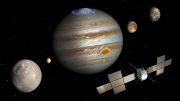
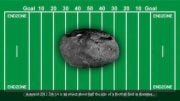

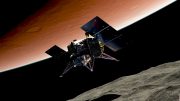
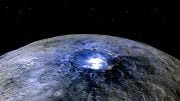

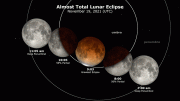
Be the first to comment on "We Asked a NASA Scientist: Where Do Moons Come From?"